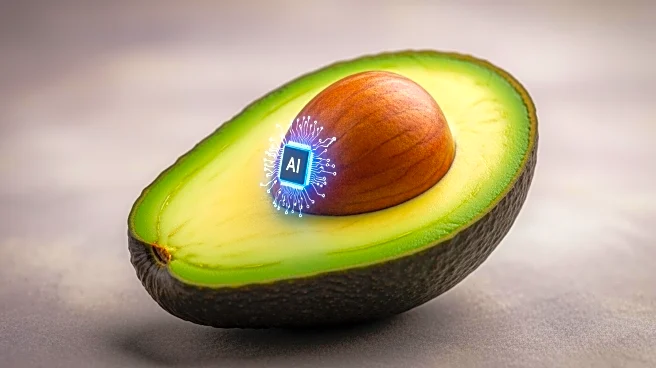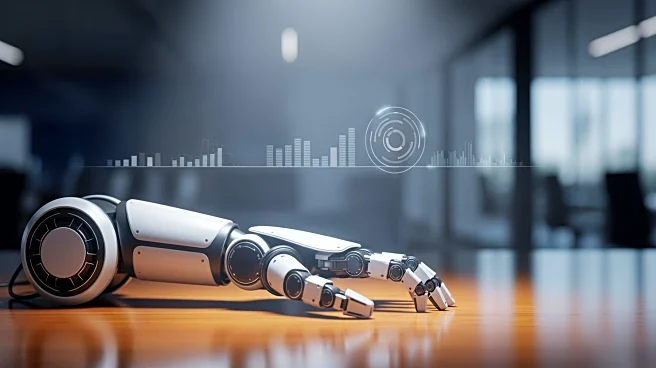What's Happening?
Researchers at Oregon State University and Florida State University have developed a smartphone-powered AI model that can accurately determine the ripeness of avocados. The AI uses over 1,400 iPhone photos
of Hass avocados to train a deep-learning model that predicts firmness, a key indicator of ripeness, with over 90% accuracy. This technology aims to help consumers and retailers make informed decisions about when to use or sell avocados, thereby reducing food waste. Avocados are among the most wasted fruits globally due to overripeness, and this innovation could significantly impact how avocados are consumed and sold.
Why It's Important?
Food waste is a critical global issue, with nearly a third of all food produced for human consumption going to waste. In the U.S., federal agencies have pledged to cut food waste in half by 2030, necessitating innovations across the food system. The AI model developed for avocados represents a step towards achieving this goal by providing a tool that can help reduce waste. By enabling smarter decisions regarding avocado ripeness, the technology could benefit consumers, retailers, and distributors, potentially extending to other fruits and vegetables in the future.
What's Next?
The AI app is not yet available to consumers, but researchers aim to make it accessible in the long term. This technology could be expanded to other produce, helping further reduce food waste. As the app becomes available, it may influence consumer behavior and retail practices, encouraging more efficient use of perishable goods. Stakeholders in the food industry may need to adapt to these technological advancements, potentially leading to broader changes in food distribution and consumption patterns.
Beyond the Headlines
The development of AI for determining fruit ripeness highlights the intersection of technology and sustainability. It raises ethical considerations about the role of technology in addressing environmental challenges and the potential for AI to contribute to sustainable practices. This innovation could also prompt discussions on the broader application of AI in agriculture and food systems, exploring how technology can be leveraged to tackle global issues like food security and environmental conservation.









